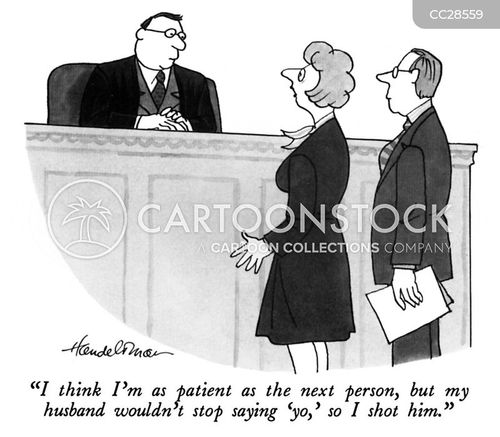Moral relativism is a philosophical concept that asserts that ethical truths are not absolute but instead are relative to the cultural, societal, or individual perspective from which they are viewed. This idea carries innumerable implications, affecting everything from legal frameworks to international relations, and is often explored through various mediums, including cartoons. One particularly evocative representation is the “moral relativism punch cartoon,” which encapsulates the complexities of this doctrine while often evoking humor or irony.
The allure of moral relativism lies in its inherent contradiction. On one hand, it offers an inclusive perspective that recognizes the validity of disparate moral viewpoints—an essential quality in our increasingly globalized world. On the other hand, it raises existential questions about the foundation of morality itself. This duality is brilliantly portrayed in various cartoons that explore the ironic twists and ethical quandaries inherent in moral relativism.
One notable observation is that cartoons have a unique ability to distill complex ideas into simple, digestible images. A moral relativism punch cartoon often presents a scene where characters are grappling with conflicting moral stances. For example, two individuals might argue vehemently about an ethical dilemma, each representing starkly different viewpoints, resulting in humor derived from the absurdity of their distasteful conclusions. This representation acts as a microcosm of broader societal debates, where one person’s moral compass is unfathomable to another.
But what underlies our fascination with moral relativism? The reasons are manifold and deeply intertwined with the human experience. To begin, moral relativism invites contemplation about the nature of truth itself. Humans are naturally inquisitive beings, constantly seeking understanding and clarity. When confronted with the idea that moral truths may vary widely, it challenges our own beliefs and compels us to reassess our definitions of right and wrong.
Moreover, moral relativism is often seen as a pathway to tolerance. In an era marked by social strife and divisive rhetoric, the acknowledgment that diverse moral frameworks coexist can foster dialogue and understanding. The punch cartoon captures this nuance by juxtaposing caricatures of differing moral perspectives, which, rather than creating conflict, underline a shared humanity, however flawed. This comic portrayal serves as a gentle admonition—while our values may differ, our intrinsic vulnerabilities and aspirations are fundamentally human.
Notably, there’s often an implicit critique hiding beneath the humor. Many moral relativism cartoons cleverly highlight the absurdity of extreme positions—whether they stem from dogmatism or radical permissiveness. This subtle commentary can provoke critical self-reflection among viewers. Do we sometimes cling too fervently to our beliefs, even when they seem inconsistent? The cartoon acts not only as a laugh but also as a mirror, reflecting our cognitive dissonance.
The issue of moral relativism is particularly salient in the context of environmental issues. For instance, the varying perceptions of climate change can be framed within a moral relativistic lens. Some view aggressive environmental stewardship as paramount, while others may prioritize economic growth over ecological sustainability. This divergence becomes even more pronounced when individuals from disparate cultural backgrounds engage with environmental policies. Understanding that these discordant priorities arise not from a lack of concern but rather from differing moral frameworks can elevate the discourse surrounding climate action.
In addition, moral relativism urges us to consider the question of culpability. Who is to blame when one society’s actions adversely affect another? This dilemma emphasizes the interconnectedness of our global landscape. Cartoons that illustrate such scenarios often rely on hyperbole, presenting caricatures that symbolize blame and responsibility. They serve to remind us that while individual perspectives shift and conflict, the collective trajectory of society is a shared burden.
The deeper appreciation of moral relativism through the lens of cartoon satire also speaks to our intrinsic need for humor as a coping mechanism. When topics feel too dire or convoluted, humor offers a release. Cartoons allow for critique without descending into despair. A good punch cartoon can provoke laughter while simultaneously illuminating serious issues. They occupy a unique space where levity and gravity coalesce, making the discourse on moral relativism more approachable and less daunting.
One could argue that moral relativism itself is a form of elite philosophy, often debated in academic circles but rarely understood by the general populace. Yet, the punch cartoon format democratizes this discussion. It takes lofty philosophical concepts and translates them into relatable scenarios, engaging a wider audience. In this sense, the cartoon embodies a fusion of art and critique, where every exaggerated detail conveys a wealth of meaning.
Finally, moral relativism remains a dynamic subject matter that intertwines with every facet of human interaction—from personal choices to international policy. As we navigate an increasingly polarized world, understanding the significance of varying moral perspectives becomes critical. Cartoons provide an invaluable commentary on this complex issue, allowing for laughter while inciting deeper thought and reflection.
In conclusion, moral relativism punch cartoons serve as illuminating commentaries on the intricacies of ethical dialogues. They capture the contradictions of human behavior, provoke introspection, and promote tolerance while cleverly intercoursing humor and philosophical inquiry. As we traverse the labyrinth of morality in a globalized world, these cartoons will continue to encourage discussions that challenge our preconceptions, reflect on our values, and ultimately guide us towards a more empathetic and informed society.
